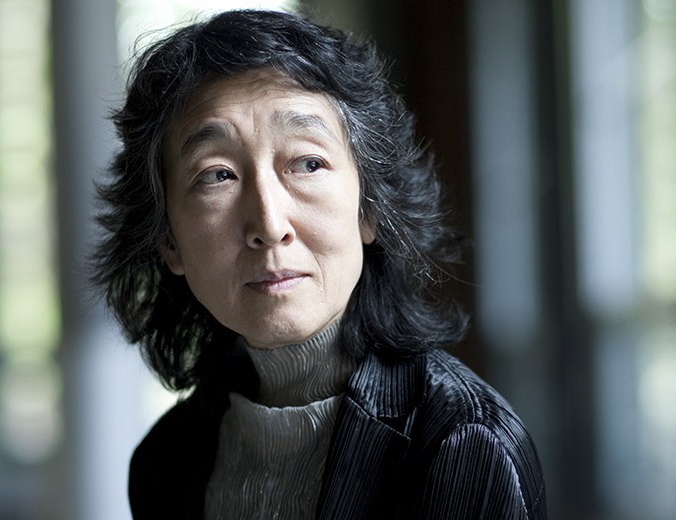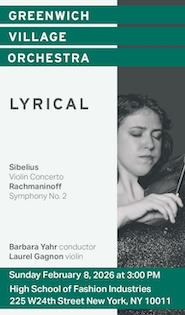Uchida’s Schubert transcends time and place at Carnegie
Virtuosity is a quality in classical musicianship that is frequently misapprehended. There are musicians who play fast, who play with aggressive physical strength, who play with demonstrative effort. But what kind of music do they make?
Playing an instrument quietly and slowly, especially for extended duration, is far more difficult. Without a flurry of notes and gestures to hide behind, the musician and their music making—ideas, experiences, insights—are exposed. In that situation true artists thrive.
One of these is the pianist Mitsuko Uchida, who played Schubert and Beethoven Wednesday night in Carnegie Hall. She can play loud and fast with the best of them—better than most, actually, as she preserves weight and phrasing—but no one can play quietly and slowly with as much musical and intellectual artistry as Uchida can.
This makes her the great Schubert interpreter of this generation, perhaps the greatest in the era of recorded music. She has an uncanny feel for Schubert’s long, repeated phrases and his extended, subtle, harmonic motion.
The Piano Sonata in G Major, D. 894, one of the composer’s most substantial works, was on the first half of the concert, and forty-five minutes rarely go by so quickly. Not that anything was rushed: Uchida’s playing was so mesmerizing that she completely altered the experience of time.
The first movement, Molto moderato e cantabile, was a perfect illustration of the greatness of this pairing of composer and musician. Schubert’s theme, counter-theme, and variations unfold over a gentle left hand, an extended song in sonata-allegro form. Where Mozart and Beethoven maneuver the harmonies through complex, tension-filled journeys, Schubert’s accompany the melodies.
Uchida made this gentle, lovely music deeply involving by keeping the dynamics soft, maintaining a flexible but clear pulse, and keeping the rhythms exact. She plays long, elegant phrases, as if the piano was taking a deep breath and expelling it gradually along the course of a line: not note to note but beginning to end.
She also maintains a pace that is perfect—different tempos are unimaginable when she plays. Her Andante was far slower than usual but her expression is consistently pellucid, her darkness always shaded with breaking dawn. Contrasts, like her exceptionally sparkling trio section in the third movement, stand out like poles around which she organizes her thinking.
Uchida’s technique goes hand-in-hand with her expression, which is plangently poetic. This music that we hear in audiences of 3,000 was meant for small rooms and intimate circles of people. Uchida bridges this dichotomy by being a public introvert: the music comes out of her like it was reflected off an internal mirror, shining out into the audience.
The music unfolds with a mysterious, affecting and satisfying feeling of organic growth, each moment sounding like the logical and inevitable result of all that came before. She keeps her means and purpose clear, and the transparency and consistency of her intentions convincingly argue that her way is the right way.
Beethoven’s “Diabelli” Variations, Op. 120, are more extroverted and introverted. Their basis is an awkward march-waltz by publisher Anton Diabelli, out of which Beethoven spun thirty-three variations. He begins by mocking the theme, but as the composition develops, the variations become increasingly searching, personal, and complex.
Maynard Solomon, in his Beethoven biography, writes that “Variation is the form of shifting moods, alternations of feeling, shades of meaning, dislocations of perspective.” This is music that wanders through rhetorical styles and the interior pathways of the composer’s imagination.
Uchida blazed that trail.
The general contrast is between fast, forceful music, and slow variations that explore chordal motion and harmonic structures. Uchida played the quick sections, like the Allegro con brio of variation twenty-one with fire, balanced, in music like the Fughetta” in variation twenty-three, with devastating elegance.
This is difficult music to play, for the body and especially the mind. Uchida’s strength was impressive, and elided with meaning it became expressive power. Her ability to play rapidly with absolute clarity and physical weight on each note is note is amazing—too difficult to leave room for flash, she made it sound easy.
What was most involving and remarkable about her playing in the variations was how she wandered as freely as Beethoven does—this is wayward, searching, surprising music—and Uchida made it sound like she was spontaneously writing the piece. As in the Schubert sonata, her ability to stop time with quiet and stillness was engrossing.
Emanuel Ax performs a recital at Carnegie Hall May 15. carnegiehall.org






Posted Apr 14, 2014 at 12:32 pm by David
There were so many wrong notes, so many lapses…